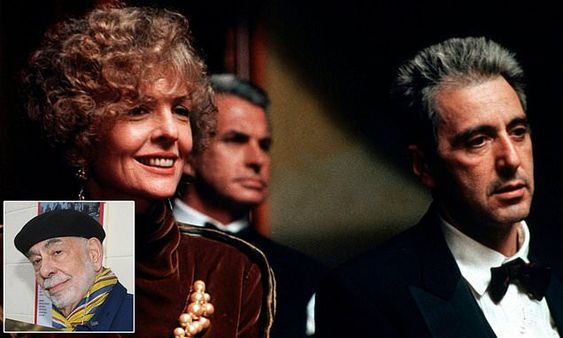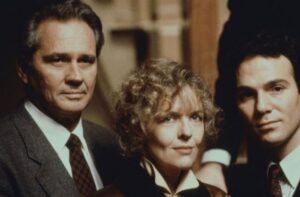
50 years of ‘The Godfather’: Robert Duvall reflects on the film, costars and legacy

The actor says he knew they were making something special as they filmed, and he shares the only other time he felt that.
Robert Duvall made his movie debut in 1962 as Boo Radley in “To Kill a Mockingbird,” and he won an Oscar as best actor as a washed-up country singer in the 1983 film “Tender Mercies.”
He’s also starred in acclaimed films from “Network” and “Apocalypse Now” to “The Great Santini” and “The Apostle.” And, Duvall’s happy to admit, he’s made plenty of not-so-great movies, too.
But Duvall points to “The Godfather” as a film he was absolutely certain was special, saying he knew even before it was finished.
“Maybe a quarter of the way through, I said to myself there’s something really important here, a really important film,” says Duvall, 91, and still making movies. “I’ve only felt that twice, and I felt it very strongly then.”
Duvall agreed to talk about director Francis Ford Coppola‘s three “Godfather” movies, the first two of which he stars in, on the occasion of their restoration for the 50th anniversary of the first film’s 1972 release. There’s a new 4K Ultra HD box set of all three.
Duvall played Tom Hagen, the adopted son, attorney and consigliere to Don Vito Corleone, the Mafia godfather played by Marlon Brando. That made him a brother to Sonny, Michael and Fredo Corleone, played by James Caan, Al Pacino, and John Cazale, respectively.
“Then, when Coppola started talking about ‘The Godfather,’ we were out in San Francisco, and he just thought automatically of the parts,” Duvall says. “Me as Tom Hagen, and Jimmy as the part he played.
“It was kind of already set, and Jimmy was responsible for that.”
When filming on “The Godfather” began, it wasn’t immediately clear what it would become, or even if it would be finished with Coppola behind the camera, Duvall says.
“He worked under tremendous pressure because he thought he was going to be fired,” Duvall says of the interference Coppola faced from studio executives early on.
“I know personally, me, Bobby Duvall, I gained a lot of respect for Coppola, a lot, for working under that kind of pressure,” he says. “He kept to his guns and he got the vision that he wanted.”
As a result, the cast and crew focused mostly on the work in front of them, and less on the big ideas embedded in the screenplay co-written by Coppola and Mario Puzo, who wrote the novel on which the script was based.
“We didn’t talk a lot about this and that, this and that,” Duvall says. “We just kind of went ahead with our natural impulses.”
The cast, which included Diane Keaton as Kay, Michael Corleone’s girlfriend and future wife, and Talia Shire, Coppola’s sister, as Vito Corleone’s daughter Connie, all melded together even before the filming started.
“Before the first day of shooting or anything, we all got together for dinner,” Duvall says. “Brando was at the head of the table, and it was really like he was a godfather to us young actors.
“It all just fit,” he says. “It worked, the relationships and everything. All we had to do was go and do what we had to do to get the final result.”
Brando, already a movie icon, treated everyone as his equals, Duvall says, and between scenes the cast kept loose by playing practical jokes and pranks on each other.
“Francis would say, ‘C’mon, guys, we got to be serious,’” he says. “But we continued, and he knew that those pranks and whatever we did were therapeutic. He knew that fooling around was a good thing to loosen people up.”
What kind of pranks were these?
“I can remember one in particular, but I can’t tell you, it’s a little too graphic,” Duvall says. “But we did a lot of mooning and things like that. Trying to get people – ‘I gotcha!’”
